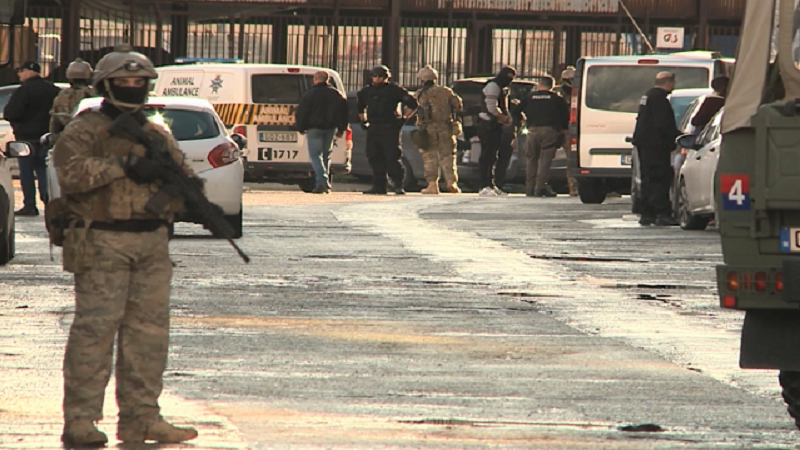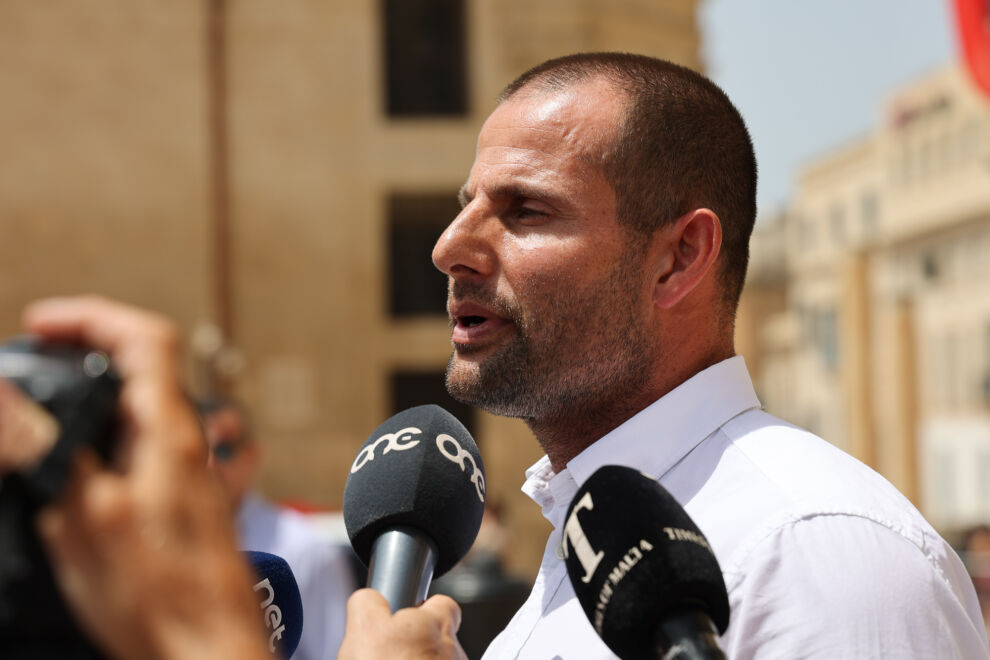On Sunday, Muscat said that in the coming years he envisions his Labour Party becoming the ‘law and order movement’, while hammering the message that people cannot simply do whatever they want. The behaviour of certain people in certain areas was no longer acceptable, he said.
Announcing that the Marsa police station will be reopened, Muscat said it was unacceptable to have residents in Marsa fearing the worst every time they leave their home. This comes after government announced that the army will be helping the police patrol “criminal hotspots and problem areas.” A measure that army and legal experts said was “undemocratic”.
Muscat is not the first and certainly not the last leader to declare himself as the law enforcer. He follows in the footsteps of his hero Tony Blair and fellow Third Way disciple Bill Clinton. The list does not stop there. Before last year’s US elections, Donald Trump declared himself “the law-and-order candidate.” Just a few days ago, the President of the Philippines Rodrigo Duterte, known for his caudillo politics, said that the Filipino economy can only grow if there is more law and order.
Malta’s Prime Minister is in good company.
Each situation has its own particular dynamics, and the situation in Malta cannot be compared to the US or the Philippines. It is obvious that Muscat is reacting to growing concerns, in Malta and abroad, about the rule of law.
Many of Muscat’s advocates have embarked on a coordinated campaign to convince us that nothing is wrong with the rule of law. Anyone saying the contrary is blowing things out of proportion or is trying to damage Malta’s reputation to either bolster the Opposition or just because they dislike Muscat.
Muscat rarely makes any miscalculations, and being the flawless strategist that he is it is hard to believe that he is falling into the trap laid by his insurgent opponents. Concerns about rule of law must be real.
Yet, there’s a problem. Rule of law and law and order, are not the same thing. Law enforcement is only one facet of the rule of law.
The State is obliged to provide security and wellbeing to everyone, irrespective of nationality, skin colour, class, religion or political allegiance, and not only of the few who occupy State institutions. Deploying the army in Marsa and other areas frequented by large numbers of migrants only fuels real and imaginary concerns about migrants, unless government implements strategies to fight racism and facilitate labour market mobility, education, family reunion, access to nationality and political participation of Third Country Nationals.
Democracy, at the very least, should guarantee fair elections, a constitution that protects individual rights and a separation of powers. To these, many would expect to add some form of assurance that no single powerful individual or faction will be able to dominate (and abuse) the political system.
The rule of law is comprised of universal principles such constraints on Government powers, absence of corruption, just laws, equality before the law and open government. Law enforcement alone is not enough to guarantee the rule of law, especially when there is a lack of trust in law enforcement authorities because of their failure to investigate oraganised crime.
The rule of law deteriorates when not everyone is equal in front of the law, when the law is enforced discriminately, when State institutions are no longer in a position to keep tabs on Ministers and when the culture of impunity and ‘anything goes’ permeates from the very top. The Rule of Law deteriorates when people perceive that there is a law for the gods and another for animals. The Prime Minister should first look at the government’s responsibility in the undermining of institutions.
Muscat uttered two remarkable quotes on Sunday, saying that Labour will be “a movement for good behaviour” and “the idea that you can do whatever you like has to stop.” Hard to disagree with the statement. But, Muscat should lead by example.
Having his chief of staff and his ‘star’ minister get away with setting up financial structures in secretive tax havens commonly used for tax evasion, money laundering and corruption is hardly setting a good example.
A number of magisterial inquiries are underway but Muscat’s failure to sack Keith Schembri and Konrad Mizzi did not set the bar very high. It is in the public interest that the full contents of all reports by the anti-money laundering agency, FIAU, on investigations on Schembri and Mizzi are publicly divulged.
It is equally important to have independent institutions, such as the police and the Attorney General, free from any political interference. Only then can we seriously start to address the problems with the rule of law.












